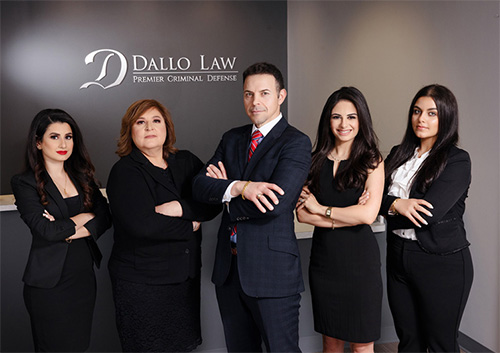The most serious criminal charges a person can face is one for homicide, also referred to as murder. The state of Michigan reserves the highest penalties for murder. If convicted, you could potentially face up to life in prison without any eligibility for parole. Because of the severity of the penalties, it goes without saying that hiring excellent legal representation after you’ve been charged with murder must be a priority.
If you or someone you know has been charged with murder, then it’s imperative you gain experienced and trusted legal representation as soon as possible. The prosecution may be pressured to aggressively pursue your charges if the case is widely publicized, so you may not have as much time as you may think. Fight for your rights and freedom by securing skilled and experienced legal counsel immediately if you’ve been charged with murder.
Homicide Defense Attorney in Oakland County, MI
You have no time to waste if you’ve been recently charged with murder or manslaughter. If you’re facing criminal charges for homicide, consult Dallo Law, P.C.. Violent crimes attorney J. Dallo of Dallo Law, P.C. is reputable in the legal field for providing quality criminal defenses by aggressively and skillfully representing his clients in court. He will vigorously investigate your case and use all the resources at his disposal to build a formidable defense against your murder charges. This includes examining any errors made by law enforcement, dissecting physical evidence for inconsistencies, and consulting with experts in the field that can advocate on your behalf.
Trust Dallo Law, P.C. to leave no stone unturned when building your defense. Set up your first free consultation with attorney Dallo by calling (248) 283-7000. Dallo Law, P.C. accepts clients throughout the greater Oakland County and Macomb County area including Pontiac, Bloomfield Hills, Troy, Oakland Charter Township, Clarkston, Southfield, Novi, Auburn Hills, Rochester Hills, Farmington Hills, Madison Heights, Birmingham, Bloomfield Township, Warren, Sterling Heights, Eastpointe, St. Clair Shores, Utica, Romero and Clinton Township.
Information Center:
- Michigan’s Homicide Laws
- Suppressing Evidence in a Murder Trial
- Statute of Limitations for Homicide
- Additional Resources
Michigan’s Homicide Laws
The state of Michigan generally defines homicide as the killing of another person. Under Michigan law, charges of homicide include, but are not limited to:
- 1st Degree Murder – Killing someone intentionally with premeditation.
- 2nd Degree Murder – Intentionally killing another without any planning or having reckless disregard for human life.
- Involuntary Manslaughter – Accidentally and unintentionally killing another person.
- Voluntary Manslaughter – Unintentionally killing another person, but the act was not an accident and was the result of escalating emotions.
- Vehicular Manslaughter – Killing another unintentionally with a vehicle because of reckless and negligent actions.
- Negligent Homicide – Unintentional killing of another person by being grossly negligent or inattentive.
- Felony Murder – If a person is killed during a felony crime, then the defendant will be charged with felony murder.
The highest and most severe charge of these is first-degree murder, which is defined under section 750.316 of the Michigan Penal Code. First-degree murder in Michigan is punishable by up to life in prison without the possibility of parole. The statute states the defendant is guilty of murder if the prosecution can prove beyond a reasonable doubt that:
- The defendant took the life of another person by doing one of the following:
- By position, lying in wait, or any other willful, and pre-mediated killing.
- The murder was committed while the defendant was committing sexual misconduct, arson, child abuse, robbery, carjacking, burglary, aggravated stalking, unlawful imprisonment, a serious drug offense, kidnapping or larceny.
- The defendant’s victim was a law enforcement or corrections officer who was actively performing their duties at the time of the offense.
Other instances of killing where the act was intentionally will be charged with second-degree murder under the Michigan Penal Code 750.317. The statute for second-degree murder doesn’t provide any sort of sentencing guideline, so the defendant may face a prison sentence of any length. If the judge believes it’s appropriate, they may impose a life sentence for the crime.
Suppressing Evidence in a Murder Trial
A proficient and skilled lawyer will take the time to carefully comb through all the prosecution’s evidence so they can determine if any of it is excludable. Suppressing incriminating evidence if the first step to a successful homicide defense and having a detail-oriented lawyer to do it for you is crucial if you want to avoid life in prison. Before the trial begins, your lawyer will have the option to suppress evidence, so it’s removed, and the jury never learns of it.
Listed below are several scenarios in where evidence may be suppressed in a murder trial.
- Evidence Was Tampered With – DNA evidence is often the holy grail for prosecutors in a murder or manslaughter trial. Often the prosecution will rely on traces of DNA evidence found at the scene to prove the defendant was at the scene of the crime. However, if the sample isn’t properly collected, stored, labeled, and analyzed, then there’s a possibility the results are skewed. An experienced attorney can request that any tampered evidence be removed from the case.
- Illegal Search and Seizures – Law enforcement must follow specific rules when they are conducting a search and seizure. Police can only search the defendant’s motor vehicle if they have enough reasonable suspicion to pull the automobile over. They must then have enough probable cause during the stop to lawfully conduct a search. If the police wish to search a home or business, they must have a valid search warrant or your consent. Officers can only search a home without a warrant in special circumstances. Evidence seized during an unlawful search can be suppressed by a skilled attorney.
- Unlawful Interrogation Procedures – After an arrest for murder, law enforcement is likely to conduct a lengthy interrogation. However, before they can do so, officers must inform you of your right to remain silent and to obtain legal representation. If you request legal counsel, then law enforcement is legally required to stop questioning. An experienced attorney can request to suppress any incriminating statements the police obtained that violates the defendant’s constitutional rights.
Statute of Limitations for Murder in Michigan
In the judicial system, state prosecutors have a deadline for when they can file criminal charges. This is commonly referred to as the statute of limitations. The purpose of this time limit is to ensure the evidence doesn’t lose its integrity and to ensure the criminal justice system is working efficiently. For first-degree or second-degree murder, there is no statute of limitations. That means the state can bring charges against you at any time, even 50 years after the crime.
There’s also no limit for conspiracy to commit murder as well as solicitation of murder. Manslaughter, on the other hand, has a statute of limitations of up to 10 years from the offense. Other related homicide offenses with a 10-year statute of limitations include assault with intent to commit murder and attempted murder.
Additional Resources
Survivor Resources – Survivor resources is a non-profit, private organization dedicated to providing immediate and long-term emotional support to those who have been affected by the unexpected death of a family member or loved one through homicide, suicide or accident.
Laws for Murder in Michigan – Visit the official website for the Michigan Legislature to learn more about their laws for first and second-degree murder. Access the site to learn the legal definition for homicide, penalties for first and second-degree murder, and other information.
Murder Defense Lawyer in Oakland County, Michigan
Do not wait another moment to secure legal representation if you’ve been charged with murder. The legal team at Dallo Law, P.C. have years of experience successfully defending clients and has an unparalleled track record to prove it. Criminal defense attorney J. Dallo of Dallo Law, P.C. approaches each case with determination, compassion, and an aggressive drive to ensure his client receives the best possible outcome for their case. Learn more about how he can help, by calling Dallo Law, P.C. today to set up your first consultation.
You can reach Dallo Law, P.C. at (248) 283-7000 for your first appointment. Dallo Law, P.C. accepts clients throughout the greater Oakland County and Macomb County area including Bloomfield Hills, Sterling, Warren, St. Clair Shores, Roseville, Eastpointe, Pontiac, Waterford Township, Troy, Royal oak, Novi, Auburn Hills, West Bloomfield Township, Madison Heights and Rochester Hills.









